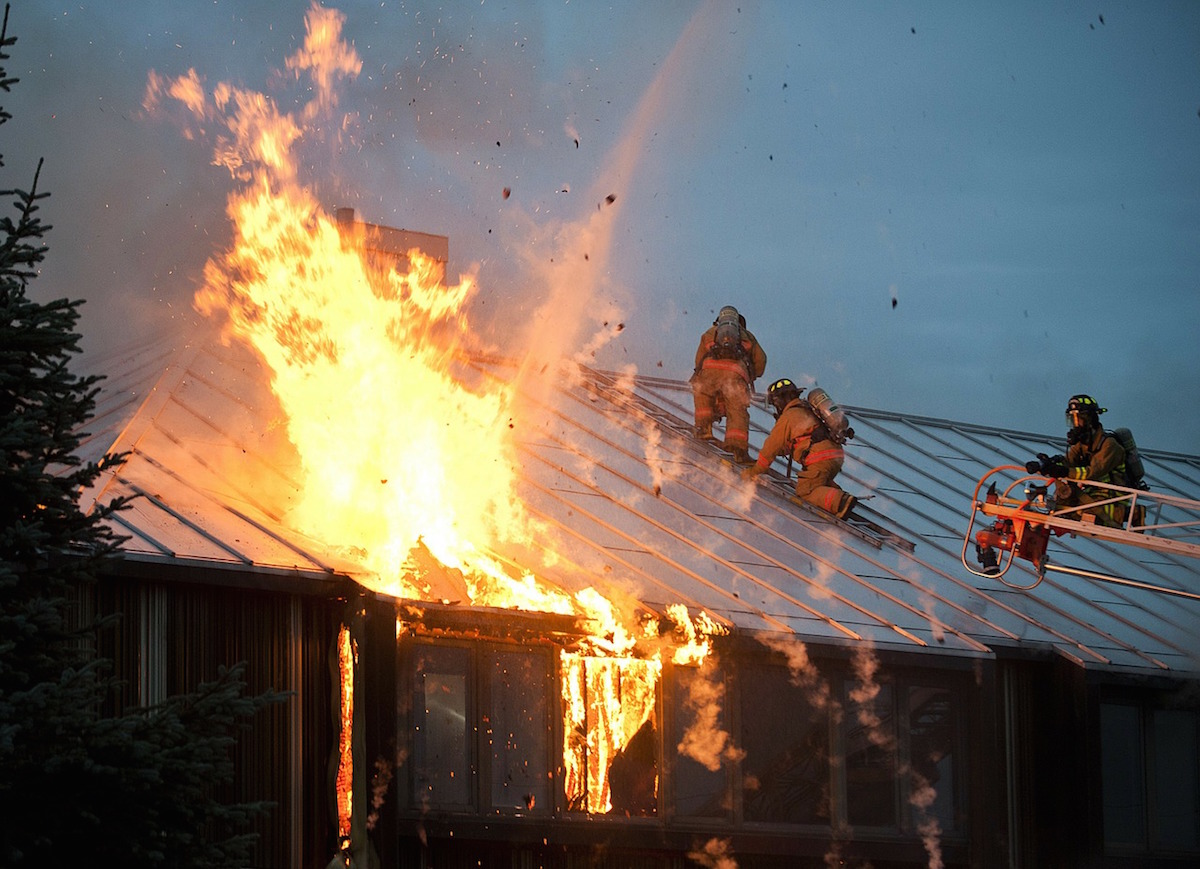In Compliance column in the May/June issue of NFPA Journal, Ron Coté, Principal Life Safety Engineer at the National Fire Protection Agency, debunks two myths regarding NFPA 101, Life Safety Code.
The first myth is that all assembly occupancy rooms with an occupancy load more than 50 must have a second egress door. This is not true, although many do have second exit access doors “in order not to violate the common path of travel limitation,” Coté writes.
For most room locations and arrangements, a second exit access door from the room can be positioned to provide occupants with a second travel path. The presence of the second exit access door can reduce what would otherwise be an excessive common path of travel to one that is within the permitted distance.
Coté also debunks the myth that exit signs are required at exits only. The signs are actually required in three locations: at exits, in the exit access, and in exit access corridors of new construction. They are required in the exit access when the exit or way to reach the exit is not readily apparent, as might be the case where additional turns in the egress path are needed to reach an exit.
They may also be needed when in exit access corridors of new construction no point is in excess of the particular sign’s rated viewing distance or the 100-foot (30-meter) default value, whichever is less, from the nearest sign.
Related Stories
| Jan 18, 2012
Report analyzes residential hurricane codes in 18 states
The Insurance Institute for Business & Home Safety (IBHS) released a new report analyzing residential building codes in 18 hurricane-prone coastal states along the Gulf of Mexico and the Atlantic Coast.
| Jan 18, 2012
Death in Chicago high-rise apartment fire blamed on fire code
The death of a Chicago woman who stepped off her elevator into a blazing inferno last week has underscored the need for fire sensors in elevators.
| Jan 18, 2012
California approves open cell spray foam for energy efficiency standards
The California Energy Commission (CEC) now recognizes open-cell spray foam as an accepted insulation in its 2008 Building Energy Efficiency Standards.
| Jan 5, 2012
Building to LEED standards now an 'easy call' from cost standpoint
Once seen as a cost burden, building to LEED standards is now an "easy call," according to Dan Probst, chairman of energy and sustainability for real estate management and development firm Jones Lang LaSalle.
| Jan 5, 2012
Minnesota's GreenStep Cities program aids communities in winning grants
GreenStep Cities, a Minnesota initiative, was designed to provide greater recognition to the state's communities for achievements in meeting sustainability standards and goals.
| Jan 5, 2012
Some ADA accessibility rules change in 2012
Some changes to the Americans with Disabilities Act go into effect beginning March 15, 2012.
| Jan 5, 2012
Ontario's stringent energy code has builders concerned over indoor air quality
Some Ontario builders are worried that new building code requirements with stricter energy efficiency measures could lead to poor indoor air quality.
| Jan 5, 2012
New law bars Defense Department from new LEED certifications
The Defense Department will not be allowed to use any money to certify its buildings LEED Gold or Platinum, under a law President Obama signed Dec. 31.
| Jan 5, 2012
Some ADA accessibility rules change in 2012
Some changes to the Americans with Disabilities Act go into effect beginning March 15, 2012.
| Jan 3, 2012
New SJI Rule on Steel Joists
A new rule from the Steel Joist Institute clarifies when local reinforcement of joists is required for chord loads away from panel points. SJI members offer guidance about how and when to specify loads.
















